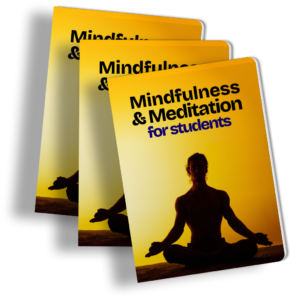Exams are a natural part of student life, but they can also be a major source of stress. While there are many strategies students can use to prepare for exams, mindfulness techniques can be particularly helpful in managing exam anxiety and improving focus.
This blog post explores some effective mindfulness techniques that students can incorporate into their routines to approach exams with a calmer and clearer mind.
- Spend Time in Nature: Immersing yourself in nature is a well-known technique for reducing stress and anxiety. Studies have shown that spending time outdoors can lower cortisol levels, the body’s stress hormone. Taking a walk in the park or spending a few minutes in your backyard can significantly reduce pre-exam jitters.
- Mindful Movement: Physical activity is another great way to combat stress and improve focus. Yoga and tai chi are particularly effective mindfulness techniques that combine physical movement with meditation. These practices encourage students to focus on their breath and bodily sensations, promoting relaxation and concentration.
- Meditation: Meditation is a powerful tool for cultivating mindfulness. By training your mind to focus on the present moment, meditation can help to reduce anxiety and improve emotional regulation. There are many different meditation techniques available, so students can find one that suits their preferences.
- Mindful Eating: What you eat can significantly impact your stress levels and focus. Mindful eating encourages students to pay attention to the physical sensations of hunger and fullness, and to savor the taste and texture of their food. This practice can help to reduce stress-related overeating and promote better digestion, both of which can contribute to improved cognitive function.
These are just a few mindfulness techniques that students can use to manage exam stress and improve their academic performance. By incorporating these practices into their daily routines, students can develop the tools they need to approach exams with a calmer and more focused mind.
It’s important to note that mindfulness is a skill that takes time and practice to develop. The more students incorporate these techniques into their daily lives, the more effective they will become in managing stress and improving focus in all areas of life, not just exams.

